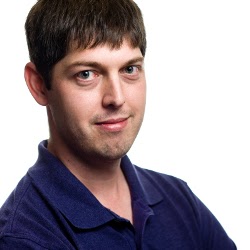The Ubuntu Community Council is the primary community (i.e., non-technical) governance body for the Ubuntu project. In this series of 7 interviews, we go behind the scenes with the community members who were elected in 2013 serve on this council with Mark Shuttleworth.
In this, our fourth interview, we talk with Michael Hall about the LoCo work that got him involved with Ubuntu, his role at Canonical and great advice he has for new contributors.
What do you do for a career?
I am a Community Manager at Canonical, which essentially means it’s my job to make sure that we, as a company, are providing all of the information, tools, and resources to our community that they need to positively contribute to the Ubuntu project.
What was your first computing experience?
When I was about 10 years old, my family got a beige-box 33MHz 386 running MS DOS. This was my into to the world of computing, and where I learned about the command line and batch scripting. By the time we upgraded to a 66MHz 486, I was already confidently poking every nook and cranny of a computer.
How long have you been involved with Ubuntu? And how long on the Ubuntu Community Council?
I became involved in the Ubuntu community through the Florida LoCo Team, going to local meetups and participating online. From that I got involved in the LoCo Team Portal, which at the time needed a way to register and track team events. Since I was employed as a web developer at the time, it was a perfect match for me. This introduced me not only to the wider Ubuntu community, but also the tools of Ubuntu’s distributed development, as well as the governance bodies like the LoCo Council.
I was elected to the Community Council a little over a year ago, and that time has been both challenging and rewarding.
What are some of the projects you’ve worked on in Ubuntu over the years?
Most of my contributions have been towards web projects, especially the LoCo Team Portal and Summit projects. I was first employed at Canonical as a web developer, and only later moved over to the Community team.
What is your focus in Ubuntu today?
Given my position as Community Manager, there’s not a clear distinction between what I do as an employee and what I do as a community member. I still occasionally contribute to web projects (Summit mostly), and actively participate in as many parts of the community as I can.
Do you contribute to other free/open source projects? Which ones?
My contributions are mostly small, drive-by contributions these days. The beauty of open source is that it’s possible (and when done right, easy) to jump in and make a fix to a project you’ve not been involved with before. I’ve submitted everything from patches to kernel drivers to support USB microscopes, to Debian packages for Python libraries.
If you were to give a newcomer some advice about getting involved with Ubuntu, what would it be?
The best advice I can give is to just start doing something. You don’t need anybody’s permission, and you don’t need anybody to tell you what to do. Just find something you like, that you think you can make better, and make it better. This can by anything, code, documentation, translations, artwork, etc. Your first contribution is always going to be the hardest, so don’t get frustrated if things don’t all go smoothly, you’ll learn from it and it’ll be easier next time. And remember that no contribution is too small or unimportant, everything has value and is appreciated.
Do you have any other comments else you wish to share with the community?
The Ubuntu community is more than just a technology group, it’s made up of more than just hackers and elite technophiles. We have all kinds of people here, and we welcome all kinds of people here. Prepare to make friends, long lasting friends. I’ve met people through the community that I am and will remain friends with outside of it. Some of them are like family to me now. That’s part of what makes our community so amazing. Embrace it.
New to this series? Check out our previous two Community Council interviews:
